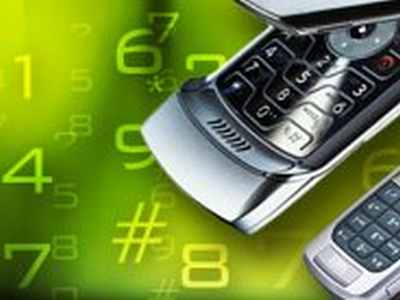 | « Back to article | Print this article |
Pesky messages back in the mask of transactional SMSes
With the government imposing restriction on pesky SMS, telemarketers have found transactional SMS, such as banking transaction and flight schedule alerts, as a safe and cheap mode of sending the promotional messages.
Telecom resources of some telemarketing companies are learnt to have been sending promotional SMSes in the guise of genuine transactional SMSes, thus saving a charge of 5 paise that is levied on each promotional SMS as per government regulation.
As per the regulation of Telecom Regulatory Authority of India, companies can send transactional SMS for bank transactions made, flight schedule and other such information which is directly related to clients even on numbers registered in the National Customer Preference Register (modified 'Do Not Call register').
For Rediff Realtime News, click here
Click NEXT to read more...
Pesky messages back in the mask of transactional SMSes
The regulator has imposed 5 paise charge on each SMS sent for promotional activity. The id used for sending a transactional SMS is in English alphabets while numeral are used as id for sending a promotional SMS.
"By sending promotional SMS using transactional id, companies save 5 paise per SMS and lakhs of such SMS are sent daily," an industry source said.
Some of the vendors using telecom resource of Aircel and Loop Mobile have been noticed for sending promotional SMS by using alphabetical id which is meant for transactional SMS.
Click NEXT to read more...
Pesky messages back in the mask of transactional SMSes
When contacted, the Aircel spokesperson said that the company in an internal query found that such SMS was sent by mistake by one of the vendor and the warning has been issued to him.
Loop Mobile did not offer any comment. An industry source informed that these kinds of SMSes are being sent by telemarketers (SMS aggregators) who have even signed code-of-conduct for ethical practice.
"Irony is that some of companies that have pledged to promote ethical practices in industry are doing it," the source said.
Click NEXT to read more...
Pesky messages back in the mask of transactional SMSes
The source alleged that such malpractice is across the industry but major concern is the people who have pledged for promoting good practices but indulged in the wrong act.
In January, seven companies including SMS marketing companies ACL-wireless, Air2web, Netcore, Pinnacle Teleservices, SMS Gupshup, Unicel technologies and ValueFirst signed Code of Conduct under the aegis of Internet and Mobile Association of India to provide transparent and effective services to customers and users.
Different industry sources named Air2Web, ValueFirst, Unicel and SMS Gupshup whose telecom resources have been misused.
Click NEXT to read more...
Pesky messages back in the mask of transactional SMSes
When contacted, SMS Gupshup CEO Beerud Sheth admitted that an employee of his company was found "reselling products of other companies" in the name of SMS Gupshup but the "company resources were not misused".
"GupShup is committed to ensuring legal compliance in the industry," he added.
Unicel and ValueFirst clarified that sometime mischievous customers secure dummy account and misuse it but action is taken immediately against such client by company.
Click NEXT to read more...
Pesky messages back in the mask of transactional SMSes
"This specific case in question is not new to us. We have seen it earlier, where a seemingly prospective customer picks up a demo account and tries to use it unethically to send promotional messages," Founder and MD of Unicel Technologies Vinay Agrrawal said.
He said that as a practice, the company leaves negligible credits in demo accounts, just enough for the customer to test the efficiency of Unicel's services.
ValueFirst denied allegation of such malpractices for saving money or winning deals, and said that the company acts strictly and has zero tolerance for such kinds of activity.
Click NEXT to read more...
Pesky messages back in the mask of transactional SMSes
"We have auditable data that we have been invoiced over Rs 3 crore as IUC (interconnect usage charges) charges for the month of November and December by the operators. This payment is the highest in the industry and is proof that we as an organisation have the intent backed by action to be compliant with the regulation," ValueFirst spokesperson said.
Sheth demanded punitive action against companies that have been unable to check leakages.
"We are disappointed that certain industry players indulge in rampant violations with impunity. They hurt the consumers, and eventually the industry as well. It is critical for the regulators to demonstrate that their words have meaning by taking punitive action," Sheth said.






